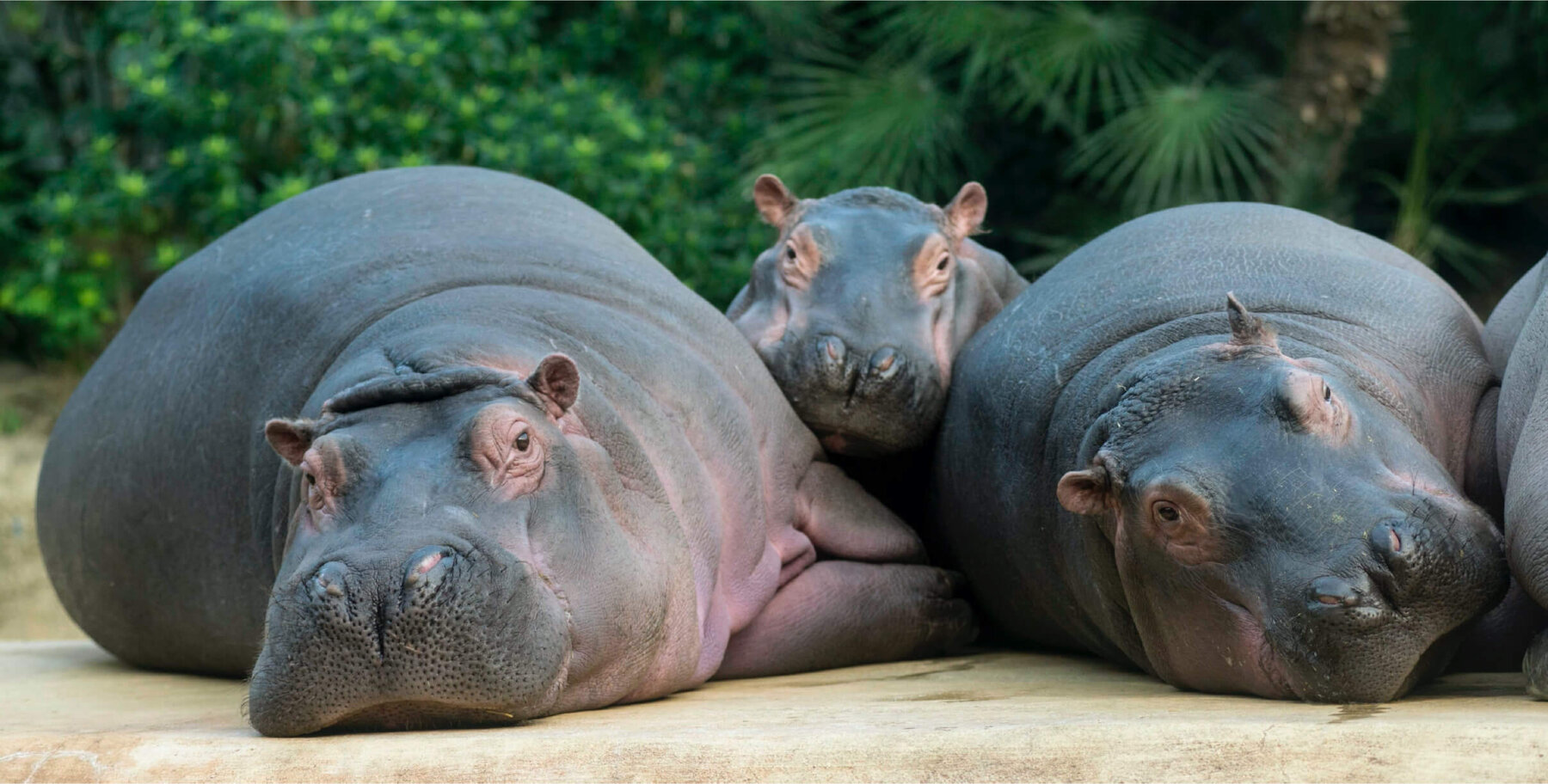
Hippopotamus
Hippopotamus amphibius
There are two different variants in the hippo family, the hippo described here – also known as the 'river horse' – and the pygmy hippo. The large canines and incisors of hippos play a significant role in their everyday life. Hippos live in savannahs where they inhabit the banks of rivers and lakes.
Night active
The hippo is a happy-go-lucky contemporary. They snooze in the water during the day, where often only their ears, eyes and the nostrils of their powerful mouth peer out. They may even take a nice soak in the mud too. They become livelier at night and head to the shores where they can taste the succulent grass.
Characteristics
- Origin
Africa, south of the Sahara
- Habitat
ommonly close to rivers and lakes
- Diet
Hippos are herbivores and so they subsist on plant food. Grass is their favourite.
- Status
125,000 to 150,000
- Size
2.7 to 3 meters
- Weight
1 to 3 t
- Gestation period
approx. 8 months
- Achievable age
over 50 years in human care
Threat Categories of IUCN


Did you know that ...
...hippos weigh up to 3 tons – as much as a removal van,
...can stay submerged for over 6 minutes,
...give birth underwater
...and mark their territory with piles of excrement?

